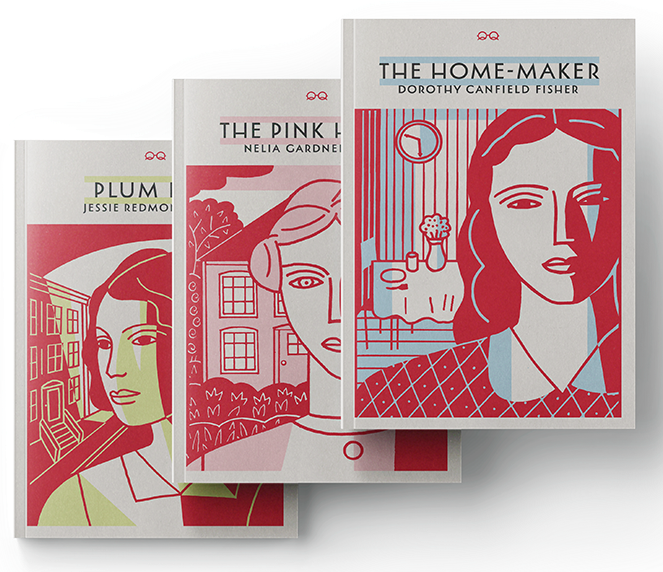Why Men Are Less Likely to Read Books by Women about Women
(And a Few Reasons Why I Think They Should)
When I was in fourth grade, my teacher read Tales of a Fourth Grade Nothing to the class. I didn’t have a precocious and annoying brother named Fudge who ate my pet turtle nor did I live in an apartment in New York City, but I found Peter Hatcher to be endlessly relatable. A few years and many, many Judy Blume books later, I was twelve and already should have been familiar with the Blume bible for most pre-teen girls in the 1970s, Are You There God? It’s Me, Margaret. But the book that found its way to me first wasn't that one, and it completely rocked my world. Dear Reader, do you remember Then Again, Maybe I Won’t?
Are You There God was told from the viewpoint of 6th grader Margaret Simon, struggling to find her place in a new school while also navigating preteen girlhood. It was a terrain I was fast becoming all too familiar with. But Tony Miglione, (who like Margaret, was dealing with all the uncertainties of puberty in Then Again Maybe I Won’t), gave me access and insight to the inner workings of teenage boys who had almost overnight become strangely, inexplicably fascinating and unknowable to me. This, despite the fact that I, a self-proclaimed tomboy of the times, had always enjoyed the company of boys as an everyday and everywhere part of my world, whether we were playing kickball or trading football cards. Seventeen magazine, some very helpful books at the Austin Public Library, and a couple of friends with forthcoming mothers or older sisters gave me some insight as to what was happening with my own body and brain, but no one was sharing with me what was happening on the other side of the fence. It never occurred to me that they might also be perplexed by the changes in their bodies and emotions, that suddenly raincoats did more than ward off rain, that a stack of books worked as a shield of sorts when their out of control bodies refused to behave. So I found Then Again Maybe I Won’t more informative than the one written “for me,” and never did it occur to me that this book wasn’t meant for me– or that it was a book reserved for and best consumed by boys. And as it turns out, maybe it wasn’t written for them anyway – according to Judy Blume herself, she wrote Then Again because, “I decided it would be interesting to try out life as a twelve-year-old boy.”
And this, after all, is why we indulge in fiction. To walk in someone else’s shoes, to be granted access to crawl around in the mindspace of people unlike ourselves– it's amazing how often when we do that, we find that there are in fact many things that are like ourselves. Recent studies have confirmed that book-reading among men is on the decline– and that when men do pick up a book, the majority of them prefer non-fiction. And when they do pick up a work of fiction, it is likely a book by a man with themes that track “male”– men read suspense, fantasy, sci-fi, literature. They do not, on the whole, pick up books filed under “romance”” or ones with female protagonists. Now, I’m making generalizations here, it’s true. But generalizations are generalizations because they are generally true, and I’m quite certain that waaay more women are reading Miranda July’s All Fours this summer than men. And I know for a fact that QLB’s readership is almost entirely women to date. Now, I don’t think girls were necessarily clamoring to read Then Again Maybe I Won’t, but it does bring us to a most perplexing paradox: Why do women not think twice about reading books by men about men while men overwhelmingly tend not to read books by women about women? Why is one considered fit for consumption by all readers and the other relegated to a more gender-specific sphere? Given that we only have so many hours to devote to reading for pleasure, what with the demands of our busy lives and smart phones to attend to, perhaps you’re thinking, shouldn’t we be glad men–or anyone, really–are reading books at all? What’s the big deal – why should men be reading books about women by women?
Honestly, dear Reader, my response is why wouldn't they? But that’s dismissive. That we have to even ask this question is illustrative of the problem though. Again, we never even think of asking, “Why should women read books by men?” But here’s one reason I think men should make a point of it – see reading books by women as an opportunity. Now, I’ve been fortunate to count many wonderful men among my closest friends over the years, and more than once I have been called in to serve as an interpreter of sorts on misunderstandings with various women in their lives, whether wives, friends, or colleagues–
“What was that all about?”
“Well, she suddenly just kinda went off the deep end…”
“No, I swear I didn’t say anything.”
And although I like being of use or counsel to my friends, I do wonder whether if they spent more time in the company of fictional women, they might actually find themselves understanding their real-life counterparts better. To be clear, I’m not saying that reading fiction will result in perfect communicative harmony across genders, but I do think that fiction singularly closes the empathy gap in all areas of humankind– and most certainly between men and women. I mean, consider a world in which Are You There God? is required reading for everyone, and so is Then Again? Although probably less so in the current political climate, many schools and parents are doing an admirable job of setting out the nuts and bolts of body development and sex–but is there really anything more effective than getting into the heart and mind of a teenage girl or boy than spending several hours there invited by the deft prose of a writer like Judy Blume who gets it? I think not. And there are so many, many writers out there, giving us all access to the interior lives of so many different women in so many different circumstances.
So here’s a thought–the next time a man in your life wants to know what he can get you for your birthday, press a book that means something to you–that either gives insight into you personally or sheds light on a truism for many women–into his hands and say, “For my birthday, you can read this – and tell me what you think.” Or consider a book by a woman as the ultimate Father’s Day gift– I mean, you can still get him a tie or a grill accessory, too, of course. Or his favorite micro-brew. It’s the perfect pairing, really.
Why Men Should Consider Reading a QLB Book
Now, we believe men should read QLB books for the simple reason that they’re good books. A good read. Pick one up and you’ll see– they’re good. But if you want something a little more specific, a special piece of knowledge a man can hope to walk away with by virtue of reading one of our books, well, here are just a few nuggets from our Social Media Strategist Jasmine Cordew he can take away and ponder on.
Why Men Should Read The Home-Maker by Dorothy Canfield Fisher
This 1920s novel flips traditional gender roles on their head when a breadwinning father is injured and his wife becomes the family provider. It challenges outdated ideas of masculinity and caretaking in a way that still feels urgent today—especially for modern fathers navigating evolving family dynamics.
Why Men Should Read Plum Bun by Jesse Redmon Fauset
Through the story of a young Black woman who decides to “pass” as white, Plum Bun exposes how privilege, race, and gender intersect. For men, it’s a chance to reflect on power, identity, and what it means to love someone honestly in a world shaped by inequality.
Why Men Should Read The Pink House by Nelia Gardner White
Told through the eyes of a disabled orphan navigating a household full of quiet tension, The Pink House reveals how care, restraint, and emotional presence shape a child’s world. For men—especially fathers—it’s a reminder that strength isn’t always loud, and that the smallest acts of tenderness can have the deepest impact.







I heartily endorse men not just reading an occasional book by a woman writer but to take it on as an immersive experience. I devoted 2015 to reading exclusively the work of woman (including my daily commute audiobooks):
https://neglectedbooks.com/?p=2990
I found the experience so transformative that I carried on for another year:
https://neglectedbooks.com/?p=3802
As a result, I discovered the work of writers like Gertrude Trevelyan, Jane White, and others we are now publishing in the Recovered Books series from Boiler House Press:
https://www.boilerhouse.press/recovered-books
Any men interested in taking part in a deep dive into one of the longest and most unapologetically female books ever written is welcome to join our 2026 group reading Dorothy Richardson's 13-volume novel, Pilgrimage:
https://readingpilgrimage.com/
Good luck with this new venture!